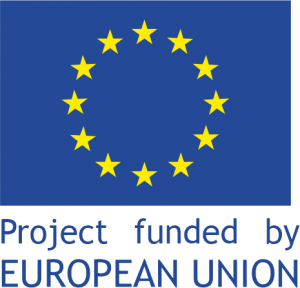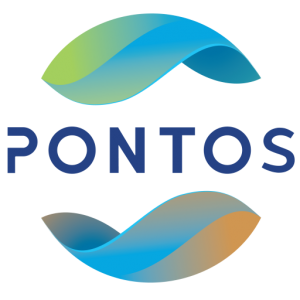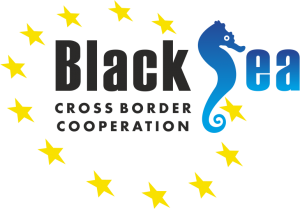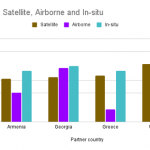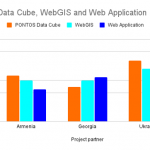In June-July, 2020 all PONTOS partners from Armenia, Greece, Georgia, and Ukraine, organized four brainstorming sessions inviting multi-stakeholder groups, including representatives from the local public authorities, regional and national public authorities, sectoral agencies, non-governmental organizations, higher education, and research institutions, business sector, and international organizations. The key objectives of the four events were to introduce the Earth Observation (EO) technologies, Copernicus products, and services, their application in the environmental monitoring, share with the audience PONTOS platform and its tools to, and, of course, receive feedback from the various stakeholders.
- According to the questionnaire results in all four countries, stakeholders mostly use the following data types for decision making.
- Questionnaire results on the interest of the participants toward different types of PONTOS platform services or which service participants will use most.
The main goal of the brainstorming events was to identify the user requirements needs. The key outcome of the four events is a trustworthy gap analysis knowledge and training strategy development.
A questionnaire was developed by the project researchers which aimed at opening up a lot of unknowns to the project team about the main target groups and the application of EO systems, to collect the needs of the stakeholders, to analyze the knowledge gap in the field, as well as to get an initial feedback on the PONTOS platform, understand the ways in which the general public can benefit from PONTOS services and outcomes. The findings or response are important input to the project activities. This helps the team to understand the right direction of the capacity building activities based on the needs of the target groups. Some of the findings showed the further need for training on the main directions and fields of the application of EO products in different countries; another important finding is the remarkable number of the users of Geographic Information Systems (GIS) in all partner countries; most respondents from all partner countries were aware of the European Union’s Earth Observation Programme Copernicus, but have minor experience working with this Programme. The data collected during the questionnaire were analyzed by the Green Alternative, project partner from Georgia and a list of recommendations and needs are shared with all partners.
